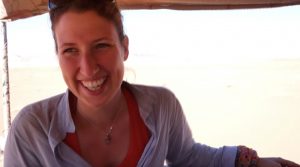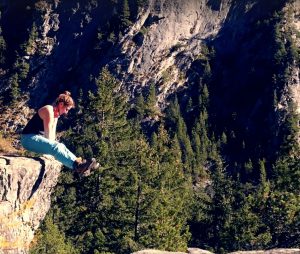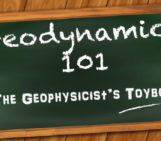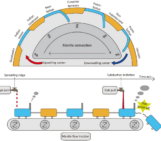
Credit: Classical Art Memes on Pinterest
Maintaining a good work-life balance is essential for a steady career and happy life in academia. However, like with all good things, it is not easy. In this new Wit & Wisdom post, Jessica Munch, PhD student at ETH Zürich, explores how to achieve a good work-life balance.
Research is a truly amazing occupation, especially in geodynamics (okay, that might be a bit biased…). However, disregarding the position you have academia, research is also a job asking for a lot of commitment, an ability to deal with pressure, (very) good organisational skills and an ability to deal with everything on time to (hopefully) stay in academia (if you want to learn more about stress and pressure effects on researchers, there are plenty of articles related to that on the web – if you did not experience them by yourself already – yay!) Hence, it seems that this dream job can sometimes turn into a nightmare, which could partly explain why so many people quit academia.
The solution to avoid having to make such an extreme decision as quitting? The legendary work-life balance: how to reconcile a job that you cannot get out of your mind once you’re done with your day (it’s not like you can easily switch off your brain once you leave your office and forget about all the questions you are trying to answer with your research, right?) with your private life, hobbies, and families?
I wanted to try to figure out what a work-life balance really means. At the very least, I wanted to find a more meaningful answer than wikipedia’s definition:
Work-life balance is a concept including the proper prioritisation between work (career and ambition) and lifestyle (health, pleasure, leisure, family)
The definition I would give based on my limited experience, is that a work-life balance is an (often rather fragile) equilibrium between academia and your private life that allows you to stay efficient and motivated about your research without losing the link with/neglecting the world outside. All of that while being happy and healthy. Easy, no?
Given my restricted experience with this balance, I wondered how other researchers at different stages in their career deal with this. I contacted several researchers and they took the time to reply to my questions although they had a very tight schedule (thanks you very much!).
A first insight comes from Susanne Buiter, Team leader at the Geological Survey of Norway: “I guess the fact that I am writing you in the weekend, on a Saturday evening says something about my balancing work and private life at the moment!”. Sounds quite tough, but then she gives some explanations. She appreciates that everyone is very dedicated to their research in our field. This often leads to long and rather unconventional working hours for research and teaching duties. This is fine as long as it is voluntary, but it should not become an expectation. Susanne’s take on this is that there should be flexibility from both sides, and that it is absolutely fine that some weeks are very busy as long as other times can be more relaxed. Considering her research not only as a job but also as a hobby seems to allow for a lot of dedication while keeping being her both happy and motivated. She also raises the question if anyone is able to actually do all the work he or she has to do when only working regular hours.
A second opinion on this precious work-life balance comes from an early career researcher, Marie Bocher, a postdoc at ETH Zürich. When discussing with her, she first points out that a work-life balance is not necessarily a condition to do a good research: one should not directly link the lack of balance in your life to a burnout. For Marie it is okay to work a lot, as long as her research is meaningful to her and she is efficient and motivated. Sometimes you work really hard, do not have a real balance, have no time for hobbies, etc., but this does not necessarily mean you are going to end up with a burnout. These kind of moments can actually be enjoyable, because you often notice that you are efficient and making progress, which is quite rewarding. Hence, what you need in research (even more than a balanced life) is a meaning to what you are doing or a reason for going to work every morning. This is what will prevent you from having a burnout and will help you to be a happy researcher. Support and validation from peers can also help.
However, Marie wonders if the work-life balance issue has always been an issue in academia. She mentions the fact that sometimes people feel pressure to have a balanced life according to someone else’s definition. Sometimes colleagues comment on the fact that you work late and that this is not normal, and that you should have a hobby (pressure to have hobbies, quite paradoxical, no?). This might result in you pushing yourself to do activities even though you would prefer to for once hang out at home and relax during your weekend. Not everyone needs to have an hyperactive life. Instead, people should just try to live a life they enjoy.
Finally, she raises the point that work-life balance is actually a dynamic equilibrium: it is something that changes depending on your situation. You cannot organise yourself the same way if you are single, if you have a partner, or if you have kids. It is a hard to find balance and that evolves with life and responsibilities.
Speaking about kids and family, the third and last (but definitely not least) thoughts on this topic come from Saskia Goes, lecturer/reader at Imperial College London. For her, having a balanced life means having time for other things besides works and occasionally time for herself – a definition she is not sure she could apply to her own life where she constantly has to juggle between work and family. Saskia explains that it is a continuous challenge to do enough work to keep the department happy and functioning, but to also say no to enough work so that she still has time for her own research, students and her family. She also points out that she has very little time to do research herself – only a few hours now and then. Her main research activity at the moment actually consists in working with students and postdocs on their papers.
When asked how she reconciles family life with her work, Saskia replies that it is doable, but only with sufficient support in the form of a partner, school care, family or friends. Moreover, she emphasises that you need to accept that you simply cannot keep up with people who work 60 to 80 hours every week and can attend three to four conferences a year. Some types of research do not work with a family, unless you have a partner who can significantly help out for a while. Bringing up the fact that a job in academia often implies a lot of moving (research positions in different countries, etc.), Saskia mentions that until now, she only moved once with her kids. The main challenge was then the lack of support (for instance from friends and family) when you move to the new place.
Finally, when I asked her for tips on how to manage all of this, she suggested to make lists to keep track of what needs to be done when, and to then divide and plan the tasks day by day, week per week so that they look manageable. The main challenge lies in trying to balance the amount of things you take on with the time you have!
According to these different insights on the work-life balance, a universal definition seems impossible. Instead, the precious balance appears to be quite personal. It depends on your situation in life, on how much your time you can actually dedicate to your project, and your ability to manage the tasks you need to do (or refuse to do). Hence, the work-life balance is a very personal concept everyone has to figure out for him/herself. Ultimately, it is just a matter of being happy with what you do.






